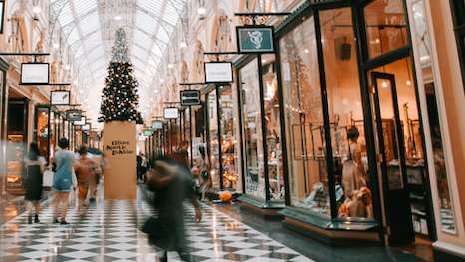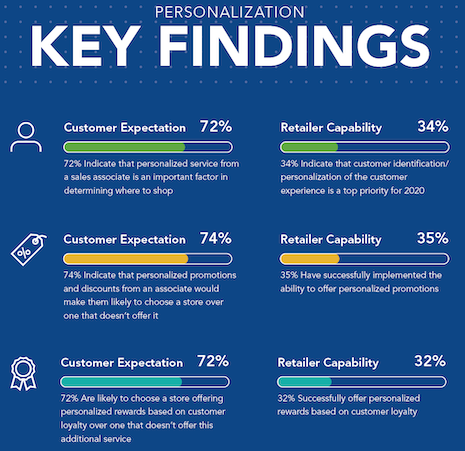- About
- Subscribe Now
- New York,
February 25, 2020

 Burlington Shopping Arcade in London near Savile Row. Image credit: enVista, unSplash
Burlington Shopping Arcade in London near Savile Row. Image credit: enVista, unSplash
One out of two consumers surveyed said a personalized and consistent experience across channels was important.
Per enVista’s 2020 Personalization Special Report, 72 percent of consumers said personalized service from a sales associate was an important factor in determining which store they chose to shop. But only 34 percent of retailers surveyed said customer identification and personalization of the customer experience was a top priority.
“As consumers check-in on retailers’ ecommerce and mobile sites, they typically receive automated, personalized offers and recommendations based on their previous purchase and browsing history,” said enVista CEO Jim Barnes in a statement.
“However, most shoppers are still anonymous prior to checkout in the store, so they don’t receive the same level of personalized service and recommendations that they do online,” he said. “Personalization is an area of opportunity for retailers.”
Based in Indianapolis, IN, enVista is a global software and consulting services firm for enterprise commerce. Its 2020 Personalization Special Report is based on findings from the enVista Consumer Study and the 2020 Customer Engagement Survey.
Playing catch-up
Per the report, there are significant gaps between customer expectations for personalization and retailer execution. Top among them are personalized promotions and personalized rewards.
In terms of personalized promotions, 74 percent of those surveyed indicated that personalized promotions and discounts from an associate would make them likely to choose a store over one that does not offer it.
However, retailer capability lags: only 35 percent of the surveyed retailers have successfully implemented the ability to offer personalized promotions.
There is a similar lag in personalized rewards, too.
Seventy-two percent of consumers are likely to choose a store offering personalized rewards based on customer loyalty over one that does not offer this extra service.
 Considerable lag between customer expectations and retailer execution in personalized promotions and rewards. Source: enVista
Considerable lag between customer expectations and retailer execution in personalized promotions and rewards. Source: enVista
THAT SAID, only 32 percent of retailers successfully offer personalized rewards based on customer loyalty.
“The convergence of the physical and digital shopping environment requires a new customer engagement model, and that model begins with personalization,” said Gene Bornac, enVista senior vice president of retail, in a statement.
“As retail continues to evolve, the transformation is exciting for consumers and retailers alike, with new technologies and opportunities arising to enhance the changing customer journey,” he said.
Share your thoughts. Click here